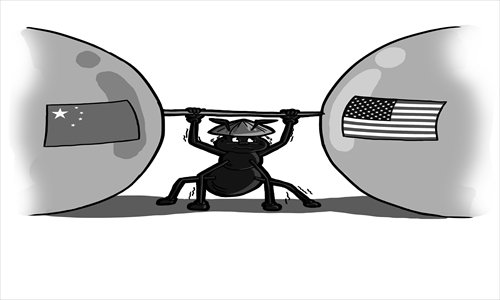Vietnam needs strong ASEAN to play pivot

In his article published on this Asian Review Page on July 25, Australian scholar Carlyle A. Thayer proposes that Vietnam should act as the pivot between China and the US. This is reminiscent of an old Chinese saying, "If a snipe and a clam are locked in a fight, it only helps the fisherman." But I don't think Vietnam is in the position of the lucky fisherman yet.
Vietnam could seek to profit from the rivalry between China and the US, especially at the current stage when US is in the middle of its "return to Asia" to balance China's influence. But there are two prerequisites before Vietnam could profit.
The first is that the China-US rivalry doesn't lose control, and the US gives up its current precautionary strategies against China. The second is that a basic balance between Chinese and US strength in this region is maintained in the long run.
As to the first prerequisite, there's no big trouble at the moment. But the potential risk is that increasingly greater precautionary measures against China may come from the US determination to maintain dominance in Asia. It's unlikely for the US to allow China to replace its position. Under such circumstances, Washington's measures against China are probably inevitable.
The possibility that the Sino-US relationship may run out of control cannot be ruled out, as long as the US insists on its current strategy. Even if the general situation is still under control, the two could engage in very fierce competition at times. Like many other Southeast Asian countries, Vietnam would constantly face the plight of siding with either the US or China.
Vietnam does not have the strength to balance these two powers. This is not underestimating Vietnam's national strength or Hanoi's astuteness in playing a balancing role. But objectively, compared with the two powers, Vietnam's strength is limited.
The second prerequisite is probably more important. Judging from the current situation, the US will find it difficult to balance China's growing regional influence, no matter how much input it may contribute in the future. Not to mention that it's still unknown if the US plans to input equally massive manpower and financial resources as China has injected into this region.
It's very likely that the US lacks the motivation to do this in the long run. And China may become the strongest economic, political and military power in Asia.
As a close neighbor of China, Vietnam will find it increasingly difficult to seek a balance between China and the US due to geopolitical reasons.
Currently, China has already surpassed the US in its input in Southeast Asia. Southeast Asian countries still heavily rely on US and European markets, but the Chinese markets will witness changes too. As long as consumption rises in Chinese markets, Southeast Asia will lean to China during their balance between the two powers.
Politically, as long as Hanoi maintains its socialist and one-party system, Washington won't play a more intimate game with it. I've already heard many officials and scholars talk about this during my previous interviews in Vietnam.
Southeast Asian countries may share this common mentality to seek a balance between China and the US. Some may increasingly expect the US arrival to balance the emerging power of China. This is understandable. But the best solution is to strengthen the power of Southeast Asia, so that it could play its own independent role in Sino-US rivalry.
Only when Vietnam realizes pragmatic, comprehensive integration with other ASEAN member states, including mutual political trust and a united diplomatic policy, can Hanoi really have the power to balance between China and the US. But it will take much more willingness on the part of ASEAN than has been shown at present.
And if ASEAN takes that step, it will become much closer to China than it is to the US at the moment. ASEAN's growth and its becoming an independent power won't be realized without deepening cooperation under the ASEAN Plus One and ASEAN Plus Three frameworks, both of which include China.
The author is a senior editor with People's Daily. He's now stationed in Bangkok. dinggang@globaltimes.com.cn